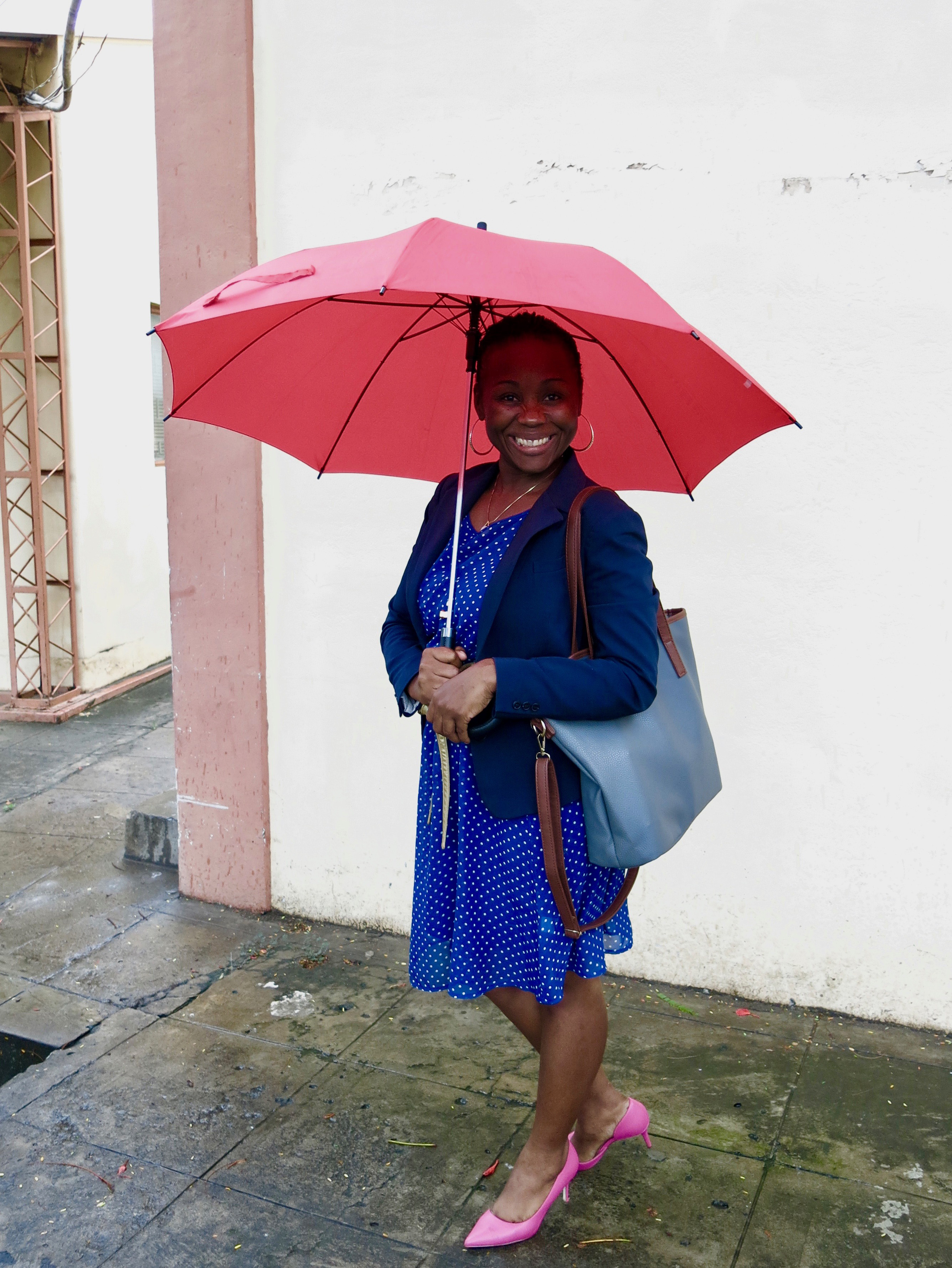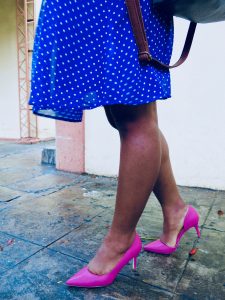
In a small classroom in a suburb of Maputo, a group of 15-year-old girls in identical school uniforms are listening to a passionate young engineer explain why they should pursue sciences and mathematics. The speaker, not many years older than they are, is wearing a dress and pink heels, paired with flawless makeup and painted nails. This is no coincidence. Not only does Ms Basse Vaz like to dress up, she also wants to make the point that there is room for femininity in science – a field largely thought of as man’s domain in Mozambique.
Ms Vaz, who has a degree in Environmental Engineering, admits she was not looking forward to the dress code she thought she would have to adopt as soon as she finished her undergraduate degree.
“As many women, I like to dress well and look beautiful. However, in Mozambique it is a common belief that sciences and engineering are masculine fields, and that women who enter these fields have to supress their femininity,” said Ms Vaz.
“I want to show the girls that it doesn’t have to be this way. And the fear of wearing clunky safety shoes should not be the reason they don’t consider science”.

Ms Vaz is currently working in a management position at an environmental consulting company, while doing a Master in Petroleum Engineering at Eduardo Mondlane University (UEM). Her MSc is one of two degrees at UEM that receives financial and academic support from the EnPe programme. As a condition under EnPe, gender equality must be incorporated into all project activities. In most cases, this means increasing the number of women.
“All EnPe projects have to incorporate gender. A large part of my role is simply to create awareness of what they can do,” said Elisabeth Strand Vigtel, the national EnPe-coordinator in Norway.
“For example, finding female lecturers, selecting academic content written by female authors and actively recruiting female students. The EnPe programme can also provide funding for activities such as school visits.”
At UEM, they would like to increase their number of female students to achieve a more balanced student body. However, when the time comes to choose university studies, many female applicants do not have the right academic foundation. This is the reason the university has started to send female students like Ms Vaz to secondary schools.
“To get more qualified female applicants for our bachelor programmes in engineering and sciences, we need to reach the girls before they choose their subjects in school,” said the Director of UEM’s Center of Coordination of Gender Matters, Ms Gracinda André Mataveia.
Professor Manuel Luis Chenene, who is teaching two courses in the MSc programme, agrees. “In the class I am currently teaching, I only have one female student. The others have left the programme. This is not as dramatic as it sounds, because there were few women to begin with.”
“To grow the number of female students, we need more female applicants with the right academic background.”
Ms Mataveia, and her colleague, Ms Beatriz Manuel Chongo, explain that girls and women in Mozambique are underrepresented in the fields of science, technology, engineering and mathematics (STEM). While the reasons are many and multifaceted, they believe that a part of the problem is that girls do not receive encouragement.
“The culture is very strong, especially in rural communities. Many believe STEM-courses are only for boys, so the girls do not get any encouragement to pursue this from their surroundings,” said Chongo.
“More serious barriers include gender-based violence in schools and sexual harassment. At the university, we are working hard to create awareness and combat such issues on our own campus. We want UEM to be a good place for women to study.”
A new generation of female academics
The master’s programme in Petroleum Engineering has no female lecturers. There has not been anyone qualified to choose from. However, there is currently one EnPe-funded women doing her PhD at the Norwegian University of Science and Technology (NTNU) in Norway. At the completion of her PhD she will return to Maputo and work at UEM.
She will be a part of a new generation of female academics within petroleum engineering in Mozambique. And hopefully, in a few years, her classroom will also consist of female students that were once influenced to pursue science by an engineer in pink heels
By Hege Gabrielsen Førsvoll